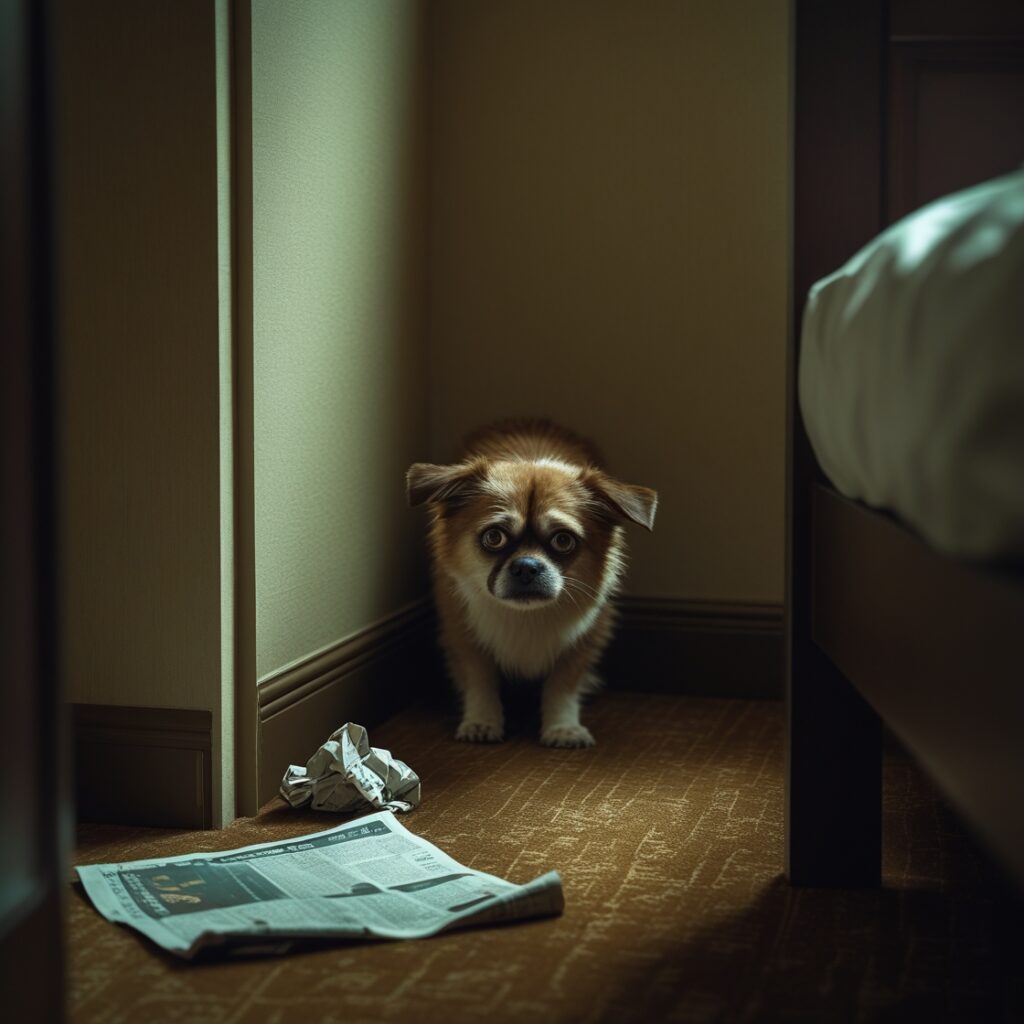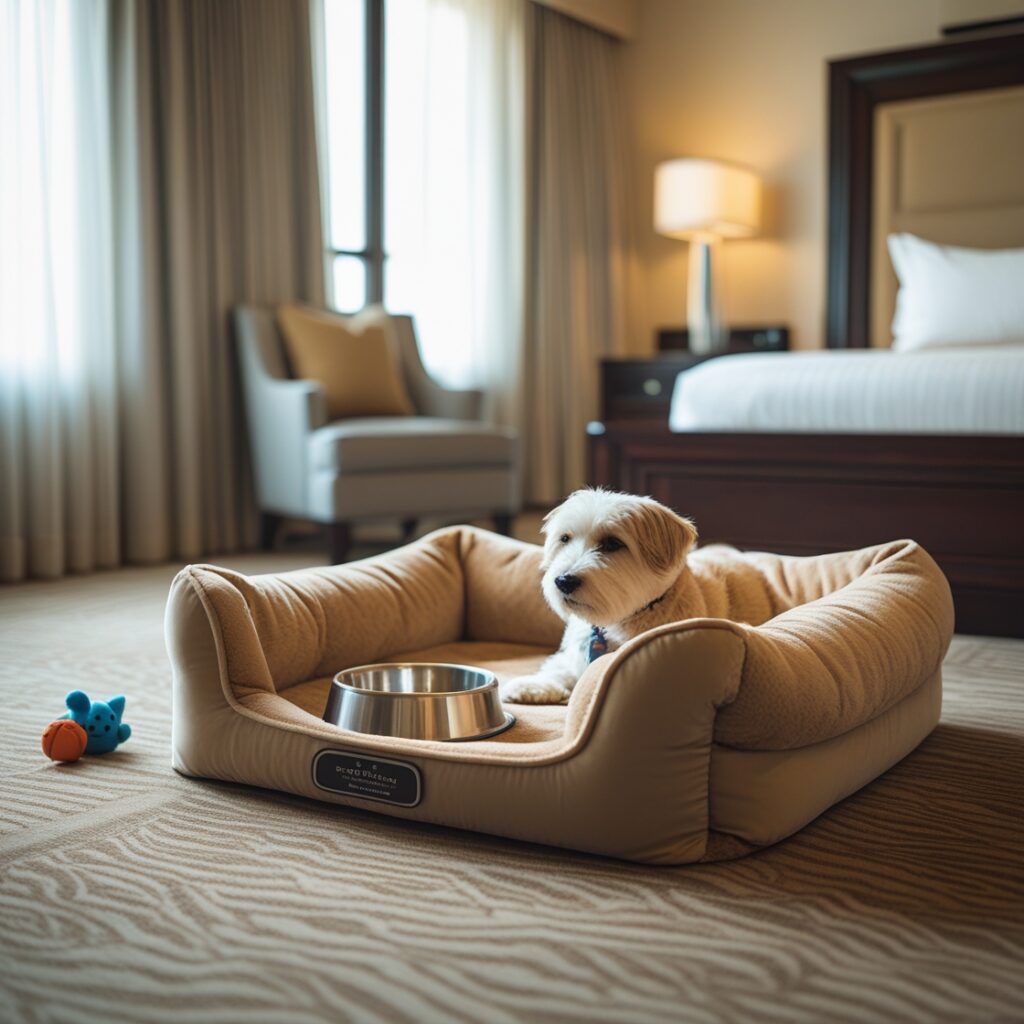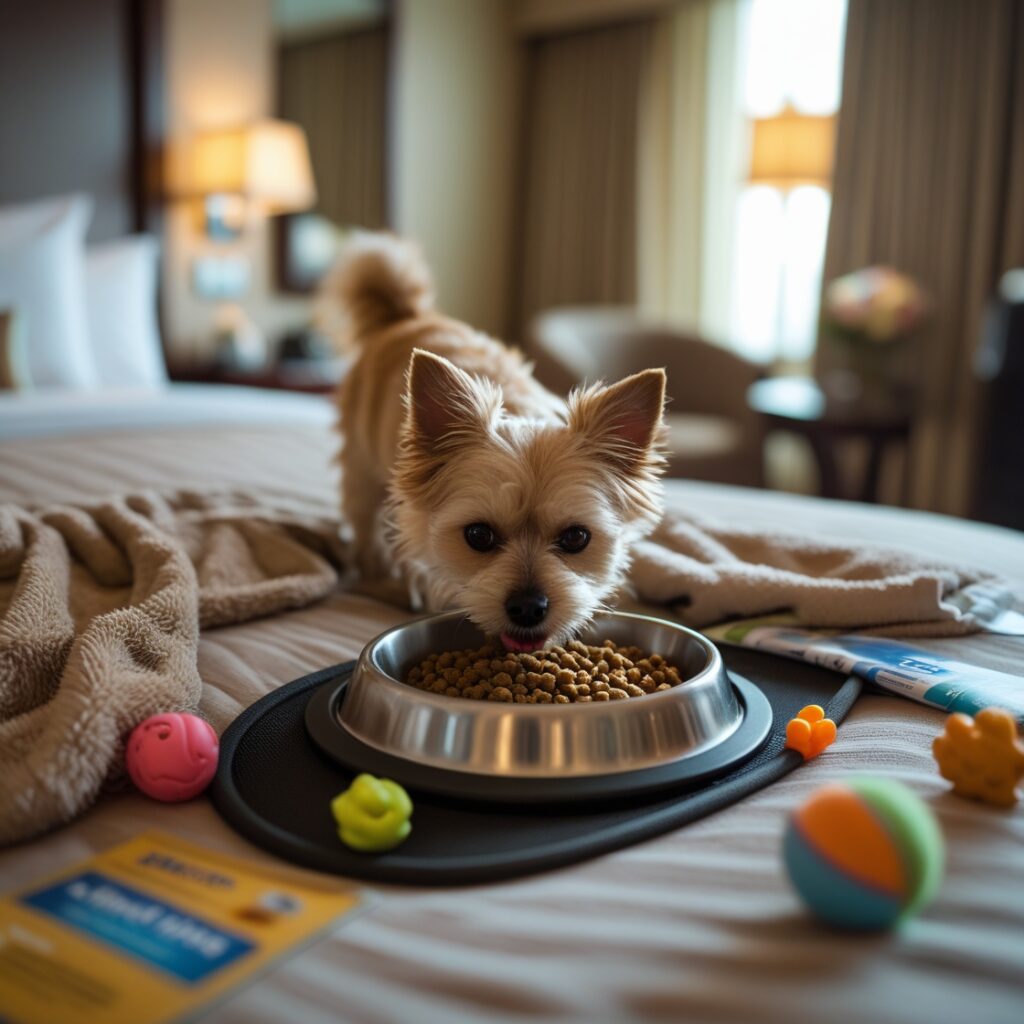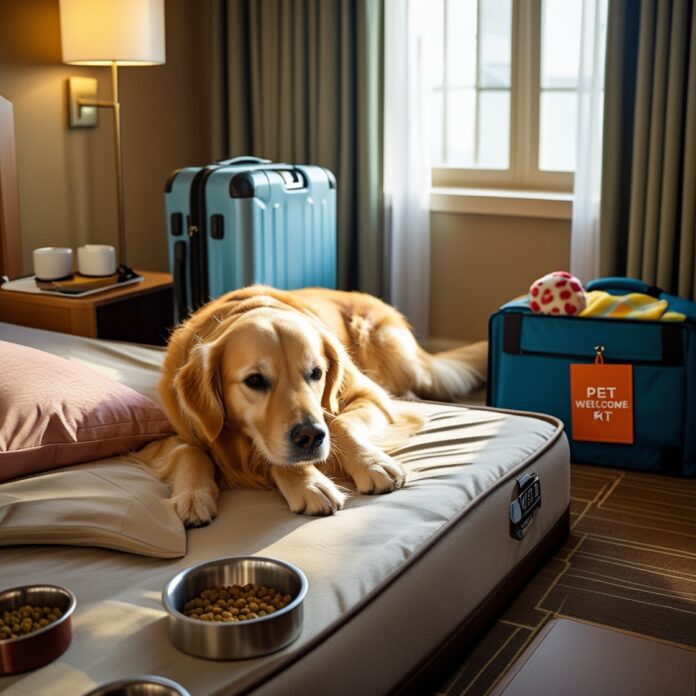Sometimes, pets can be excellent travel companions, but the downside is they can also be a handful. One of the most daunting tasks for pet parents is to make sure that their pets are not feeling anxious, and they still enjoy the hotel experience. The presence of new smells, sounds, and spaces can indeed make the most gentle animals feel uneasy. With the variety of pet-friendly places to stay, most would feel rather annoyed, or worse, frustrated. However, this guide offers strategies to alleviate the stress of traveling with pets and the happiness of both you and your pet during your hotel stay.
Why Hotel Stays Can Be Stressful for Pets
It is true that most pets find comfort in the familiar things, while they become anxious and unruly in an unfamiliar or strange situation. For this reason, most owners face a lot of difficulties when adjusting their pets to new surroundings. They get bored and irritable at the same time, but they are still likely to be very frightened if they smell or hear something that can not be reconciled with what they sense of familiar sounds and objects. They become nervous, they tremble, they show mild-to sever irritability, and in some cases, they become very aggressive. For example:Introducing them to the new environment of the hotel can cause anxiety and confusion.
Aside from this, there are also the characteristic reactions that one can observe in pets such as excessive barking, crouching, or avoiding food. When a pet has grown in a home, animals like dogs especially, like a living human, develop certain routines, likes, and preferences for a place they eat, sleep, and play. The mere fact that such animals are forced to change their habitual surroundings triggers severe depression. They lose both their appetite and emotional stability. In most cases, they present such signs of improvement but only after undertakings which are done together with their owners, no change of address, and no loss of their pet or loved home.
- Excessive barking or meowing
- Refusal to eat
- Destructive behavior
- Restlessness or hiding
Recognizing the symptoms and the general behavior pattern is the initial step of learning which activities interest them and thus should be done more often. It is a sign that your pet is tense or frightened, and they need a place to hide until they feel safe and secure. These pet-like behaviors are sort of the child version of human actions, and by spotting them, the animal will feel comfort and security to continue with these frequently performed actions.

1. Book a Truly Pet-Friendly Hotel
There are lots of hotels that publicize themselves as “pet-friendly” but there is a difference between being pet-friendly and being pet-welcoming. So, make your choice wisely as the amenity is detailed. If you look for information that will be necessary for you and your pet, it can speak about some essentials like:
- On-site pet relief areas or nearby parks
- Rooms on the ground floor for easy access
- Pet welcome kits

2. Pack Familiar Comfort Items
One of the easiest ways to reduce your pet’s anxiety in a new environment is to bring along items from home. The familiar scent of their own bed or toys can be incredibly comforting. Your packing list should include:
- Their regular food and water
- Favorite blanket or bed
- Toys or puzzle feeders
- Any medications or supplements
- Portable food and water bowls
- Litter box or waste bags (depending on the pet)
This helps maintain a sense of routine even when the surroundings are new.
3. Stick to Your Normal Routine
Routine is everything for pets. Try to stick as closely as possible to your usual schedule for feeding, walks, and bathroom breaks. This predictability can help your pet feel like everything is under control—even in a strange place.
If your dog usually goes for a walk in the morning and after dinner, maintain those walk times, even if you’re in a different city. Similarly, if your cat is used to a quiet play session before bedtime, don’t skip it just because you’re traveling.

4. Allow Your Pet to Explore Slowly
As soon as you check into your hotel, give your pet some time to explore the room under your supervision. Walk them around on a leash if necessary and let them sniff and inspect each part of the room. The key here is not to overwhelm them.
Stay close during this process and speak to them in a calm, reassuring tone. Try to avoid overstimulation, and don’t introduce too many new things at once.
5. Use Natural Calming Aids
If your pet is particularly anxious, consider using calming products such as:
- CBD oil or treats (only use products formulated specifically for pets)
- Pheromone sprays or diffusers like Adaptil (for dogs) or Feliway (for cats)
- Anxiety wraps or vests, like the ThunderShirt
- Calming music playlists for pets (available on platforms like Spotify or YouTube)
Always test these items at home before your trip to ensure they work and are well-tolerated.

6. Create a Safe Zone
Create a dedicated area within the room that your pet can call their own. Use their blanket or crate to set up a cozy corner away from distractions like windows or air vents. This space should be used for sleeping, resting, and chewing toys—anything that signals calm.
For dogs, bring their crate if they’re crate-trained. Cats may appreciate a covered space to hide and relax, like a soft carrier or even a small travel tent.
7. Don’t Leave Pets Alone—or Leave Them the Right Way
Many hotels have policies against leaving pets unattended in rooms, and even if it’s permitted, it’s not always advisable—especially if your pet is prone to separation anxiety.
If you must leave:
- Keep them in a secure crate or pen
- Leave on soft music or white noise
- Close curtains to avoid visual stimuli
- Use a pet monitoring camera to keep an eye on them from your phone
Notify the front desk, just in case there’s an issue while you’re out.

8. Get Plenty of Exercise
Whether you’re staying at a hotel in a bustling city or a rural getaway, make sure your pet gets plenty of physical and mental stimulation.
Before checking in:
- Go for a long walk or play fetch in a nearby park
Before bedtime:
- A short walk can help them relax and fall asleep easier
Tired pets are less anxious and more likely to settle in their new environment.
9. Prepare for Bathroom Breaks
If you’re staying in a high-rise hotel or somewhere without easy outdoor access, plan your bathroom routine carefully. For dogs, look for nearby parks or designated pet relief areas. For cats, bring a travel litter box with familiar litter from home.
Accidents can happen—especially if your pet is nervous—so bring enzyme-based cleaners and puppy pads just in case.
Final Thoughts
Stress-free pet travel isn’t just a dream—it’s entirely possible with the right planning. From selecting the right hotel to packing comfort items and maintaining routines, your efforts will pay off in the form of a happy, relaxed companion.
A calm pet means a more enjoyable trip for everyone involved. Whether it’s your first trip together or your tenth, these tips will help you both feel more at home—even away from home.



